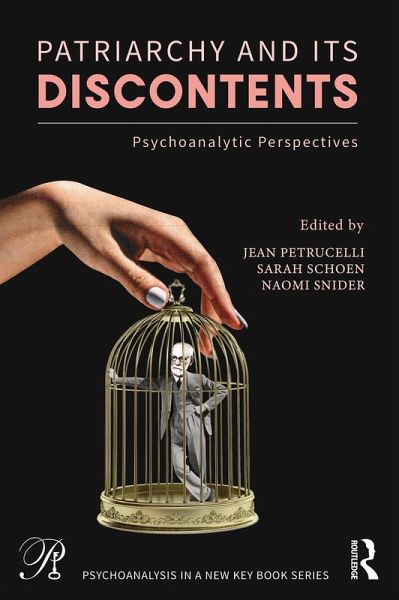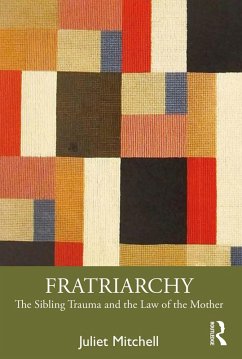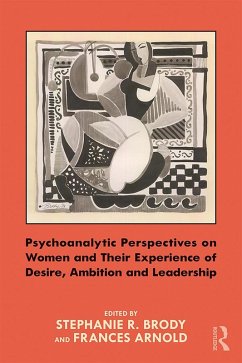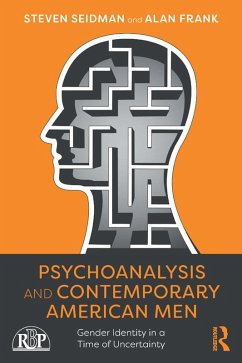
Patriarchy and Its Discontents (eBook, PDF)
Psychoanalytic Perspectives
Redaktion: Petrucelli, Jean; Snider, Naomi; Schoen, Sarah
Versandkostenfrei!
Sofort per Download lieferbar
31,95 €
inkl. MwSt.
Weitere Ausgaben:

PAYBACK Punkte
16 °P sammeln!
This anthology of interviews and essays joins luminaries in contemporary psychoanalysis with pioneers of feminism to provide a timely analysis of the crushing effects of patriarchy and the role that psychoanalysis can play in moving us into a future defined by mutuality and respect.Departing from the contemporary psychoanalytic view that the socio-political and intrapsychic are inextricably linked, contributors use psychoanalysis as a tool to demystify and even dismantle patriarchy, while also examining how our theories, practices, and institutions have been implicated in it. The issues under ...
This anthology of interviews and essays joins luminaries in contemporary psychoanalysis with pioneers of feminism to provide a timely analysis of the crushing effects of patriarchy and the role that psychoanalysis can play in moving us into a future defined by mutuality and respect.
Departing from the contemporary psychoanalytic view that the socio-political and intrapsychic are inextricably linked, contributors use psychoanalysis as a tool to demystify and even dismantle patriarchy, while also examining how our theories, practices, and institutions have been implicated in it. The issues under examination here include important and often under-theorized topics such as institutional responses to boundary violations, the search for a black-feminist psychoanalytic theory, patriarchal enactments within the trans community, the persistence of patriarchy within contemporary psychoanalysis, and the impacts of patriarchy on diverse patient populations and ways to address this clinically.
This book represents the first anthology comprised of voices from both within and outside the psychoanalytic realm, outlining a contemporary feminist psychoanalysis for both an analytic and non-analytic audience. It is invaluable for both psychoanalysts and for those in gender studies wishing to draw on psychoanalytic thinking.
Departing from the contemporary psychoanalytic view that the socio-political and intrapsychic are inextricably linked, contributors use psychoanalysis as a tool to demystify and even dismantle patriarchy, while also examining how our theories, practices, and institutions have been implicated in it. The issues under examination here include important and often under-theorized topics such as institutional responses to boundary violations, the search for a black-feminist psychoanalytic theory, patriarchal enactments within the trans community, the persistence of patriarchy within contemporary psychoanalysis, and the impacts of patriarchy on diverse patient populations and ways to address this clinically.
This book represents the first anthology comprised of voices from both within and outside the psychoanalytic realm, outlining a contemporary feminist psychoanalysis for both an analytic and non-analytic audience. It is invaluable for both psychoanalysts and for those in gender studies wishing to draw on psychoanalytic thinking.
Dieser Download kann aus rechtlichen Gründen nur mit Rechnungsadresse in A, B, BG, CY, CZ, D, DK, EW, E, FIN, F, GR, HR, H, IRL, I, LT, L, LR, M, NL, PL, P, R, S, SLO, SK ausgeliefert werden.













